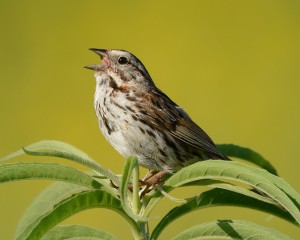
By Colorado Review Editorial Assistant Susannah Lodge-Rigal
Upon starting my first semester in Colorado State’s MFA program, I quickly found this community to be one comprised of generous, careful, and deeply kind writers and readers. From my very first workshop, I was blown away by the kind of feedback people were giving to one another—the softness with which folks rendered their interpretations and the attention poured into each reading. I left class feeling as though I’d found a balm—some help to that which is heartaching, infuriating, and heavy about these times. I recall thinking to myself, “I have stumbled into something truly human here.” This thought is still one I find rolling around my head most days.
Since starting this program, I’ve thought often about how poetry can serve as a salve. By salve, I don’t mean some finite solution or answer. I mean some literary reaching out that softens the boundaries between your lived experience and mine. There is a shared hope, I think, between poet and reader, that through written extensions we might all feel heard, seen or opened up in some gentle, un-lonely way. This companionship exists for me inside our workshop at CSU—in the voices of the kind and smart people I hear from each day—but too, emerges in the voices of my favorite poets—in their silences, softness, and the formal choices enacting these qualities. Before starting this program, I knew that poems could speak in revelatory and surprising ways. I have learned since that they can listen with equal vigor.
Of late, we’ve been reading W. S. Merwin’s The Lice in a workshop facilitated by poet and Colorado Review poetry editor, Matthew Cooperman. Merwin’s poems sing out of their context, speaking into the Vietnam War, environmental crisis, and civil unrest in the United States. What is strange and refreshing about Merwin’s poems is that they read as being at once tethered to a particular moment, while also somehow boundless in their current resonance. Throughout many of the poems in The Lice, surrealism, silence, and possibility all contribute to a unique sense of companionship across time and space—one so softly and sincerely extended that I found myself deeply moved by the collection entire.
The other night, I found myself reading “How We Are Spared” over and over. Merwin writes:
At midsummer before dawn an orange light returns to the mountains
Like a great weight and the small birds cry out
And bear it up
Here, Merwin offers an aubade with a softness of syntax and sound that settles forward in the mouth. His lack of punctuation throughout presents a fluidity in language that fosters an openness and sense of possibility. The images nuance the gentleness at work here. The “orange light returns,” and so we can see the mountains anew, feel the heaviness in this looking—the “great weight” of returning light. The large scale of this image is then offered its counterweight in the birds’ “cry[ing] out/ And bear[ing] it up.” The smallness of the bird does not prevent it from making a sound to fill the space entire, and thus the silence residing in the poem is disrupted. The crying out might be read doubly, as an expression of suffering, and too, as an urgency for communication. In three lines, we are given a number of dualities: silence and sound, lightness and heaviness, the wound and the courage to bear it. At once removed and deeply resonant, this poem offers a response to its title, “How We Are Spared.”
In this poem and many others by Merwin, I found that openness of form, softness of sound and image, and sincerity in tone suggest new ways I might approach poems as a writer and reader, and too, how I might more gently and generously approach my daily interactions with those around me. Merwin’s poems seem to be listening hard to the world and responding with equal parts tenderness and courage. They seem certain in their own uncertainty. They reach out to their reader with a kind of wisdom removed from the answers and assert that no one need feel alone. I can hope for no greater pleasure in reading than that.